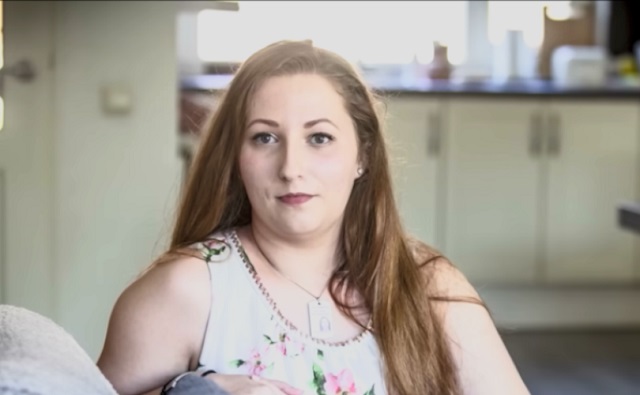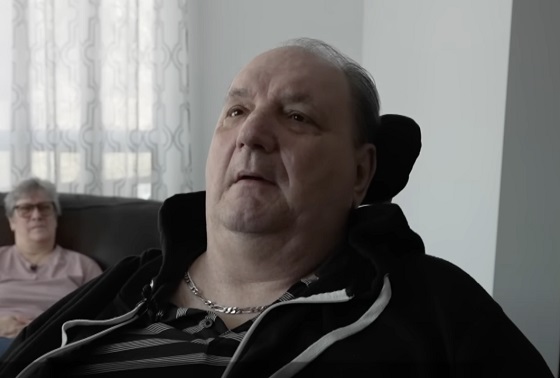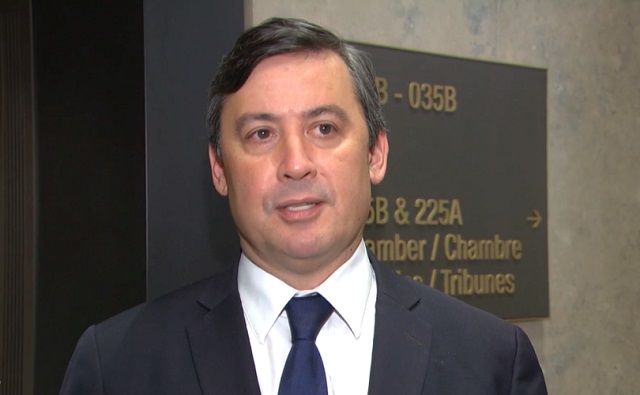COVID-19
Public Health Agency of Canada “not recommending an additional bivalent booster for the general population this spring”
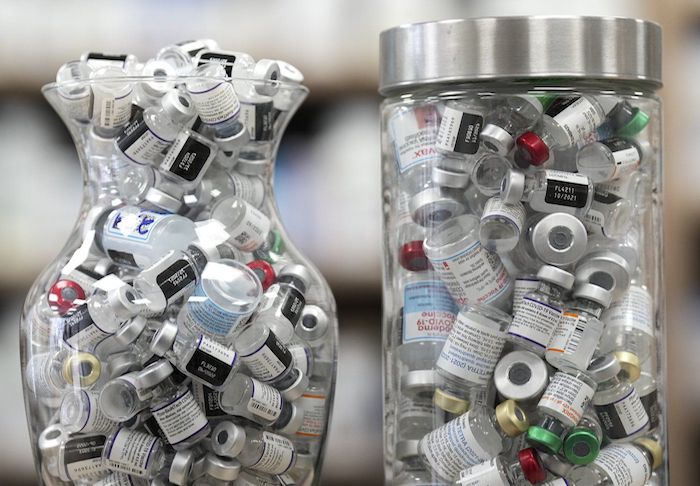

Below is the statement on the Public Health Agency of Canada website from Friday, March 3:
OVERVIEW
- On March 3, 2023, the Public Health Agency of Canada (PHAC) released guidance from the National Advisory Committee on Immunization (NACI) on an additional COVID-19 booster dose in the spring of 2023 for individuals at high risk of severe illness due to COVID-19. This guidance is based on current evidence, vaccine principles and NACI expert opinion.
- NACI now recommends that: Starting in the spring of 2023, an additional booster dose may be offered 6 or more months from the last COVID-19 vaccine dose or infection to the following individuals who are at increased risk of severe illness from COVID-19: (Discretionary NACI recommendation)
- Adults 80 years of age and older
- Adults 65 to 79 years of age, particularly if they do not have a known history of SARS-CoV-2 infection
- Adult residents of long-term care homes and other congregate living settings for seniors or those with complex medical care needs
- Adults 18 years of age and older who are moderately to severely immunocompromised due to an underlying condition or treatment
- Bivalent Omicron-targeting mRNA COVID-19 vaccines continue to be the preferred booster products.
- Individuals who have not received previously recommended doses, including a primary series or fall 2022 booster dose, are recommended to receive them now. For more information, please refer to Guidance on COVID-19 vaccine booster doses: Initial considerations for 2023.
QUOTES
“Bivalent booster dose uptake is still relatively low among the populations at risk of severe disease, and we hope to see this improve. Older adults, particularly those over 80 years, consistently have the highest risk of severe disease, especially if they are unvaccinated. We have historically seen patterns of waning protection against severe disease by 6 months after the last dose, particularly in older adults without prior infection. Because of this, as a precautionary measure, NACI is recommending this spring that an additional bivalent booster dose may be offered after 6 months for those at highest risk of severe disease, including older adults and persons who are moderately to severely immunocompromised. There may be a broader program in fall of 2023, depending on COVID-19 epidemiology.”
– Dr. Shelley Deeks, NACI Chair
“It remains important to stay up to date with your COVID-19 vaccines, including recommended booster doses, given the continued circulation of SARS-CoV-2 virus variants in Canada and elsewhere. Booster doses help to build back protection against severe disease that wanes over time after COVID-19 vaccination or infections. Given the current COVID-19 epidemiology, including the relatively stable disease activity we have observed in recent months, and generally high levels of antibodies against COVID-19 from vaccines and/or infection among Canadians, NACI is currently not recommending an additional bivalent booster for the general population this spring. However, individuals at highest risk of getting severely ill from COVID-19, including older adults and individuals considered immunocompromised, may be offered a spring bivalent booster dose. Regardless of risk factors, I encourage anyone who has not yet received their primary series or their fall 2022 bivalent booster to get these vaccinations now to reduce their risk of severe outcomes of COVID-19, including hospitalization.”
– Dr. Theresa Tam, Chief Public Health Officer
Alberta
Maxime Bernier says it’s ‘astounding’ Alberta is ‘pushing’ COVID boosters, tells Danielle Smith to stop it

From LifeSiteNews
The People’s Party of Canada leader tells the Alberta government: ‘It’s over! Get over it!’
People’s Party of Canada (PPC) leader Maxime Bernier said Alberta Premier Danielle Smith should tell provincial health bureaucrats to “back off” and stop “pushing” the mRNA COVID boosters on “anyone,” considering a recent announcement from health officials recommending yet more COVID shots.
“I find it astounding that Alberta public health bureaucrats are still pushing the mRNA boosters on anyone, and especially on children who have never been at risk, almost two years after almost all other pandemic measures have been ended,” Bernier told LifeSiteNews.
“Danielle Smith’s government should tell its bureaucrats to back off and stop stupidly feeding a needless sense of fear surrounding the virus that lingers among certain groups of society. It’s over! Get over it!”
Earlier this week, officials from Alberta Health Services (AHS), whose chief medical officer throughout the COVID crisis, Dr. Deena Hinshaw, was fired by Smith in 2022, updated its COVID booster recommendations to every “three months” starting at babies only six months old.
“Starting April 15, 2024, select groups of Albertans at high risk of severe outcomes from COVID-19 will be eligible for an additional dose,” the AHS noted on its website.
AHS health officials still assert that all “vaccines are safe, effective and save lives,” and that one can get a COVID shot at the same time as a flu vaccine.
On April 16, Bernier commented on the AHS’s new COVID jab guideline changes on X, in which he asked, “What’s going on in Alberta with their “conservative” government?
Bernier, who was a firm opponent of both the COVID shots and mandates, told LifeSiteNews that AHS’s recommendations are puzzling, given “more and more scientific evidence is emerging of dangerous side effects when injecting from these experimental substances.”
“Even though these are only recommendations, and nothing is mandated, this ‘guidance’ by government agencies influences people’s decisions,” Bernier said.
AHS claims that the booster shots “are anticipated to provide a good immune response against currently circulating strains.”
Those under 18 still need written or verbal consent from their parents to get the shot.
AHS is recommending booster jabs for seniors, healthcare workers as well as those with underlying medical conditions. They also recommend that First Nations people and “members of racialized and other equity-denied communities,” as well as pregnant women get the shots as well.
The COVID shots were heavily promoted by the federal government as well as all provincial governments in Canada, with the Alberta government under former Premier Jason Kenney being no exception.
The mRNA shots themselves have been linked to a multitude of negative and often severe side effects in children.
Danielle Smith took over from Kenney as leader of the United Conservative Party (UCP) on October 11, 2022, after winning the leadership. Kenney was ousted due to low approval ratings and for reneging on promises not to lock Alberta down as well as enacting a vaccine passport. Smith was opposed to COVID jab mandates.
Bernier: It’s ‘deplorable’ some provinces still mandate COVID shot for Heathcare workers
While Alberta does not mandate the COVID shots for healthcare workers anymore, British Columbia still does as well as some health regions in Ontario, a fact that Bernier called “deplorable.”
“I find it deplorable that nurses, doctors and other healthcare workers in B.C. and Ontario still have to be vaccinated to work in hospitals and that thousands of them have not been reintegrated,” Bernier told LifeSiteNews.
“The authoritarian covid measures adopted by all governments have been traumatic enough for millions of Canadians. All of them should be lifted.”
Last year, LifeSiteNews reported on how the details of the Canadian federal government’s COVID-19 vaccine contract with Pfizer for millions of doses of the mRNA-based experimental shots were recently disclosed after being hidden for over three years.
The contract with Pfizer shows the government agreed to accept the unknown long-term safety and efficacy of the shots. The details of the Pfizer contract do not disclose how much the government spent on the jabs.
A bill introduced by Conservative Party leader Pierre Poilievre that would have given Canadians back their “bodily autonomy” by banning future jab mandates was voted down last year after Trudeau’s Liberals and other parties rejected it.
Adverse effects from the first round of COVID shots have resulted in a growing number of Canadians filing for financial compensation over injuries from the jabs via the federal Vaccine Injury Program (VISP).
VISP has already paid well over $11 million to those injured by COVID injections.
Earlier this year, LifeSiteNews reported on how officials from Health Canada have admitted that there is “residual plasmid DNA” in the COVID shots after a Conservative MP asked the agency through an official information request if the DNA fragments were in the shots.
As for Bernier, earlier this month he called out Poilievre for dodging a question regarding Canada’s participation in the United Nations’ pro-abortion Paris Climate Agreement.
Throughout most of the COVID crisis, Canadians from coast to coast were faced with COVID mandates, including jab dictates, put in place by both the provincial and federal governments.
After much pushback, thanks to the Freedom Convoy, most provincial mandates were eliminated by the summer of 2022.
There are currently multiple ongoing class-action lawsuits filed by Canadians adversely affected by COVID mandates.
Freedom Convoy
Trudeau’s use of Emergencies Act has cost taxpayers $73 million thus far
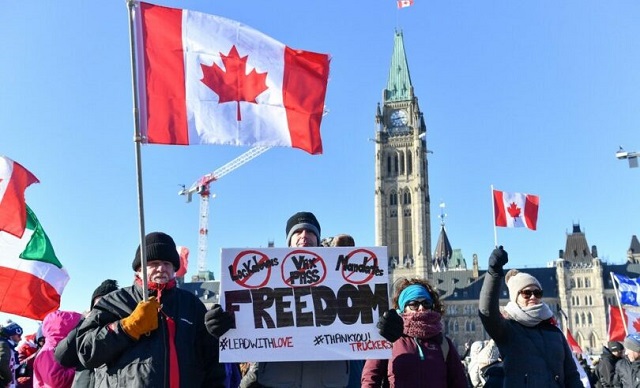
From LifeSiteNews
Expenses for the Emergencies Act, the use of which a federal court ruled ‘not justified,’ included $17.5 million for a judicial inquiry, $400,000 for charter flights and $1.3 million for hotel rooms for out-of-town RCMP officers.
The Liberal government’s use of the Emergencies Act against the 2022 Freedom Convoy has cost Canadian taxpayers over $73 million thus far.
According to newly released records obtained by Blacklock’s Reporter, Prime Minister Justin Trudeau’s enactment of the Emergencies Act, the use of which has since been ruled “not justified” by a federal court, to drive out Freedom Convoy protestors from Ottawa in 2022, cost the Department of Public Safety $73,550,568.
According to Blacklock’s Reporter, the $73 million figure was part of records released by the department at the request of Conservative MP Ziad Aboultaif, and despite its high number, is not the final account.
“With regard to enactment of the Emergencies Act in 2022, what was the cost burden for the government?” Conservative MP Ziad Aboultaif asked.
“Cost associated with fiscal year 2023-2024 are still to be determined,” the department responded.
According to the Department of Public Safety, most of the public safety expenses were attributed to local authorities in Ottawa and Windsor, Ontario.
“It should be noted additional funding allocated by the government to Ottawa and its partners as well as Windsor were not specifically as a result of the Emergencies Act invocation but meant to compensate both municipalities for the extraordinary expenses incurred during and after the protracted blockades,” the report said.
Other expenses included $17.5 million for a judicial inquiry, $400,000 for charter flights, and $1.3 million for hotel rooms for out-of-town RCMP officers.
The costs were incurred after Trudeau enacted the Act on February 14, 2022 to shut down the Freedom Convoy protest which took place in Ottawa.
The popular protest featured thousands of Canadians calling for an end to COVID mandates by camping outside Parliament in Ottawa. Measures taken under the Act included freezing the bank accounts of Canadians who donated to the protest.
At the time, the use of the Act was justified by claims that the protest was “violent,” a claim that has still gone unsubstantiated.
In fact, videos of the protest against COVID regulations and vaccine mandates show Canadians from across the country gathering outside Parliament engaged in dancing, street hockey, and other family-friendly activities.
Indeed, the only acts of violence caught on video were carried out against the protesters after the Trudeau government directed police to end the protest. One such video showed an elderly women being trampled by a police horse.
Recently, Federal Court Justice Richard Mosley ruled that Trudeau was “not justified” in invoking the Emergencies Act.
However, the Trudeau government has doubled down on its heavy-handed response to citizen protesters, filing an appeal with the Federal Court of Appeal – a court where 10 of the 15 sitting judges were appointed by Trudeau.
-

 Jordan Peterson2 days ago
Jordan Peterson2 days agoJordan Peterson slams CBC for only interviewing pro-LGBT doctors about UK report on child ‘sex changes’
-
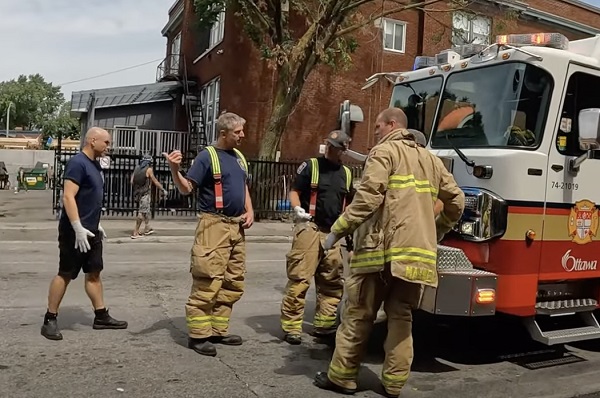
 Addictions2 days ago
Addictions2 days agoLiberal MP blasts Trudeau-backed ‘safe supply’ drug programs, linking them to ‘chaos’ in cities
-

 International23 hours ago
International23 hours agoTelegram founder tells Tucker Carlson that US intel agents tried to spy on user messages
-

 International11 hours ago
International11 hours agoGerman parliament passes law allowing minors to change their legal gender once a year
-
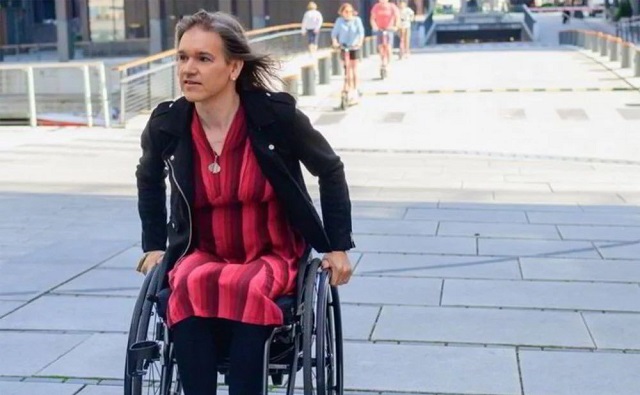
 Opinion14 hours ago
Opinion14 hours agoTransgender ideology has enabled people to ‘identify’ as amputees
-

 Business24 hours ago
Business24 hours agoNew capital gains hike won’t work as claimed but will harm the economy
-

 Business18 hours ago
Business18 hours agoCanada’s economy has stagnated despite Ottawa’s spin
-

 Economy2 days ago
Economy2 days agoFederal government remains intransigent on emissions cap despite dire warnings of harm
